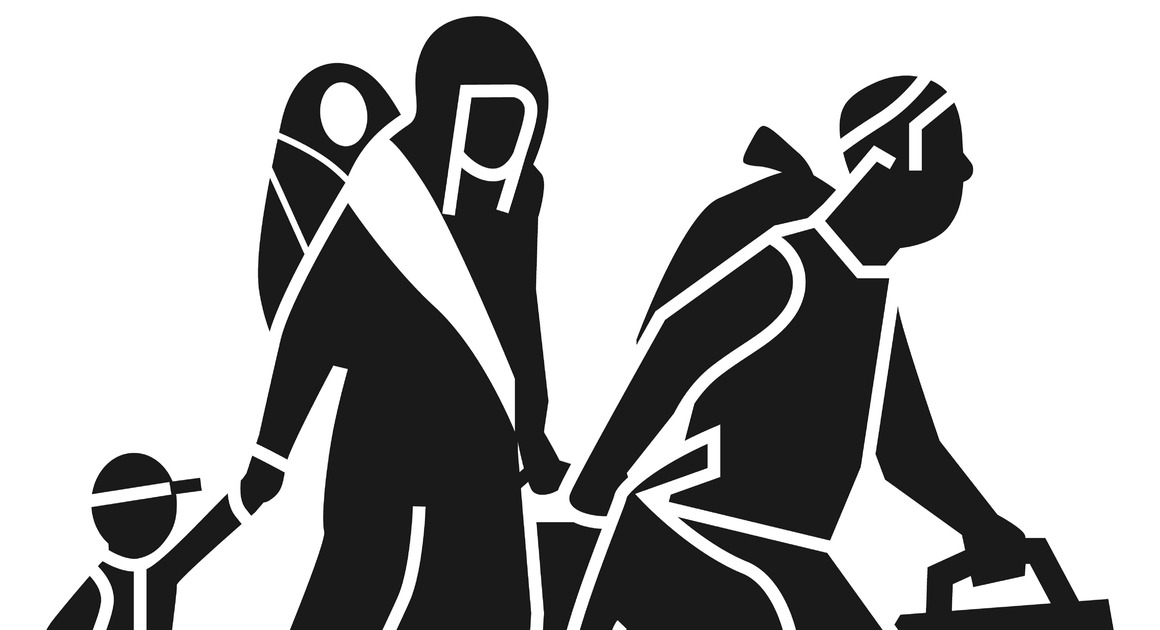- Tags (3)
Migrants Day A Rights-based Approach for Climate Migrants

In the last 10 years, an estimated 260 million people have been forced to migrate due to climate-related impacts. Today, on International Migrants Day, PSI demands an approach which combines the protection of their human rights and the defence of quality public services.

Genevieve Gencianos
In celebration of December 18 International Migrants Day, we stand in solidarity with the 272 million international migrants worldwide, a majority of whom are migrant workers, particularly women migrant workers. We recognize that migration is a natural human phenomenon, it is a steady feature of civilisations, and with globalization, improvements in communications, technology and transportation come the mobility of people.
However, of serious concern is that much of migration today is becoming forced migration, with millions of people being displaced due to conflicts and disasters.
Key Figures
People displaced by climate disasters
260 mi
in the last 10 years
7 mi
in the first half of 2019 alone
22 mi
by the end of 2019
One of the most profound impacts of climate change is the resulting forced displacement of populations. It is estimated that in the last ten years, more than 260 million people had been displaced by climate disasters.
In the first half of 2019 alone, of the more than 10 million displacements recorded worldwide (IDMC, 2019), 7 million were caused by sudden-impact climate-related disasters, such as cyclone Idai in Southeast Africa, cyclone Fani in South Asia, hurricane Dorian in the Caribbean and storms and flooding in the Philippines, Iran and Ethiopia.
It is estimated that new displacements associated with extreme weather events could more than triple to around 22 million by the end of 2019.
Meanwhile, slow-onset impacts such as droughts and desertification continue to spread, resulting to food insecurity, water scarcity and resource-related conflicts such as those seen in the Middle East and North Africa, the Lake Chad region and in the Horn of Africa.
After a steady decline, global hunger is on the rise again, with over 820 million suffering hunger in 2018 (WMO, 2019). It is no doubt that climate-related factors render communities vulnerable, particularly in developing countries that are the most affected. The resulting climate migration necessitates a holistic approach and a global action.
COP25
At the recently concluded 25th Conference of the UN climate change negotiations (COP25) in Madrid, it was a deep disappointment to see many of the items under negotiation being postponed for further negotiations in 2020. However, a notable outcome was the adoption by Member States of the COP25 decision on the Warsaw International Mechanism for Loss and Damage (WIM).
The decision acknowledges, among others, that governments should, when taking action to address climate change, respect, promote and consider their obligations on the rights of migrants. It further mandates the establishment in 2020 of an expert group to enhance provision of action and support to developing countries to address loss and damage that may arise, including on climate-driven population displacements in developing countries. The decision also establishes the “Santiago Network on Loss and Damage” to support the implementation of these actions.
Public Services International (PSI) sees this COP25 decision as a valuable opportunity for public service trade unions and the wider trade union movement, along with our civil society allies, to demand governments in both developed and developing countries for a rights-based approach to climate migration.

Rosa Pavanelli, Public Services International (PSI) General Secretary says:
“PSI demands a rights-based approach in tackling climate migration. This rights-based approach is grounded on two pillars, i.e. the protection of human rights and the defence of quality public services.
As more and more people are forced to migrate due to climate-related impacts, with a majority of them in search for work and livelihood opportunities, we call on governments to protect the human rights of all migrants regardless of their status.
Governments must abide by their obligation to international human rights and humanitarian law in framing migration policies and in the protection of refugees.
At the same time, we must continue to build preparedness and resilience of communities, and this can be done by ensuring quality public services for everyone. A well-funded and fully-functioning public services sector delivering public goods, such as emergency response, health and social services, water and sanitation, municipal services and public infrastructures, among others, is crucial in addressing climate change and its impacts.
Public service workers, who are at the frontlines in the fight against climate change, know this very well. The better the ability of a community to provide quality public services to everyone, the stronger is its ability to adapt to climate change, to avoid outward migration and to sustainably handle any internal displacement or inward migration that may take place.
This even further goes beyond adaptation and responding to climate change impacts. This is about bringing a holistic approach. It is about protecting human rights, promoting equality and inclusion, and fighting fascism, racism and xenophobia in our societies.”